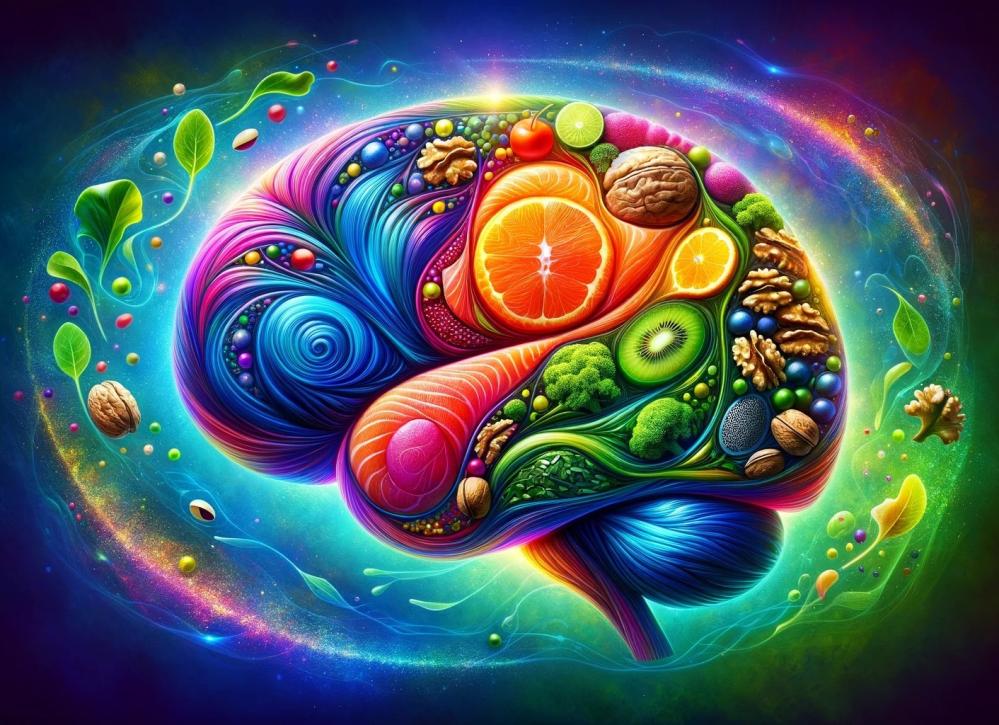
Convincing children to eat healthy is a familiar struggle for many parents, and often a losing battle. We all know that children need adequate nutrients to grow and thrive, but knowing what nutrients they need, and more importantly, motivating them to consume them or eat nutritious, nutrient-rich foods, can be extremely difficult and challenging.
Decades of research have demonstrated the benefits of omega-3 fatty acids, eicosapentaenoic acid (EPA) and docosahexaenoic acid (DHA), for children's brain structure and function, neurological and cognitive development, and immune health. However, despite their importance to children's health, research and statistics have shown that children consume far less than the recommended daily intake and are not getting enough omega-3.
Omega-3 in particular is one of the elements that is difficult to get enough of from food only because your meal, no matter how healthy and complete, will not give you enough Omega-3.
For example, adequate omega-3 levels help support children's physical, cognitive, and social development by promoting:
normal brain and central nervous system function
Healthy immune response and respiratory protection
Regulating focus and attention
Cognitive skills such as reading and math
Omega 3 is the key to a child's intelligence.
Omega-3 is one of the most important essential fatty acids that plays a vital role in brain growth and development, especially in children. Given its close association with enhancing brain function, regular consumption is recommended to support children's intelligence and mental abilities.
Benefits of Omega 3 for children's intelligence:
- Boosting brain function: Omega-3 helps improve brain functions related to memory, concentration, and learning, which contributes to improving a child's academic performance.
- Supports brain health: Omega-3 helps protect brain cells from damage and inflammation, contributing to long-term brain health.
- Reducing attention deficit hyperactivity disorder (ADHD) in children: Studies have shown that omega-3 may help reduce symptoms of attention deficit hyperactivity disorder (ADHD) in children.
- Improving /strong> Omega-3 may contribute to improving a child's behavior and reducing aggression and impulsiveness.
Omega 3 in the first 6 years of a child's life
The first 6 years of a child's life are a golden period for building mental capabilities and brain development, and omega-3 fatty acids play a pivotal role in this amazing journey.
Omega-3 is an essential fatty acid that the body cannot produce in sufficient quantities, so it must be obtained through diet and nutritional supplements .
Types of Omega 3:
- Eicosapentaenoic acid (EPA): EPA is one of the most important types of omega-3 and is found in large quantities in fatty fish .
- Docosahexaenoic acid (DHA): DHA is an essential building block of brain cell membranes and is found in abundance in fatty fish and marine algae .
- Alpha-linolenic acid (ALA): ALA can be partially converted into EPA and DHA in the body and is found abundantly in flaxseeds , chia seeds , and walnuts .
Why is Omega 3 important for your child in the first 6 years?
- Brain development: Omega-3 is essential for building brain cell membranes and neural connections , contributing to improved brain functions related to intelligence, memory, and learning.
- Intelligence: Studies have shown that omega-3 deficiency can lead to impaired mental abilities and delayed cognitive development in children.
- Mental health: Omega-3 may help reduce symptoms of attention , concentration , memory , and behavioral disorders in children.
- Eye health: Omega-3 is essential for retinal development and vision in children.
- Heart health: Omega-3 may help lower blood pressure and reduce the risk of heart disease in children.
Symptoms of Omega-3 deficiency in your child
Omega-3 is an essential nutrient for healthy growth and development in children. A deficiency can lead to a number of symptoms, including:
symptoms Rumor :
- Dry skin and hair : Omega 3 helps maintain moisture in the skin and hair and protect them from damage .
- Muscle fatigue and exhaustion : Omega 3 contributes to energy production and improving muscle function .
- Poor concentration and attention : Omega 3 is essential for brain functions related to memory and concentration .
- Mood disorders : Studies have shown that omega-3 deficiency may be linked to psychological disorders in children , such as depression and anxiety .
- Weak immune system : Omega 3 helps boost the immune system and fight infection .
- Delayed development : Studies have shown that omega-3 deficiency may be linked to delayed language and motor development in children .
symptoms less Commonly :
- Dry eyes : Omega 3 helps maintain eye moisture and protect it from corneal inflammation .
- Joint pain : Omega-3 helps reduce inflammation and improve joint health .
- Sleep disturbances : Studies have shown that omega-3 deficiency may be linked to difficulty sleeping in children .
- Aggressive behavior : Studies have shown that omega-3 deficiency may be linked to aggressive behavior in children .
Help your child grow healthy with the safest, most sought-after and most effective Omega-3 supplement for children, now on Blumore , from here .

